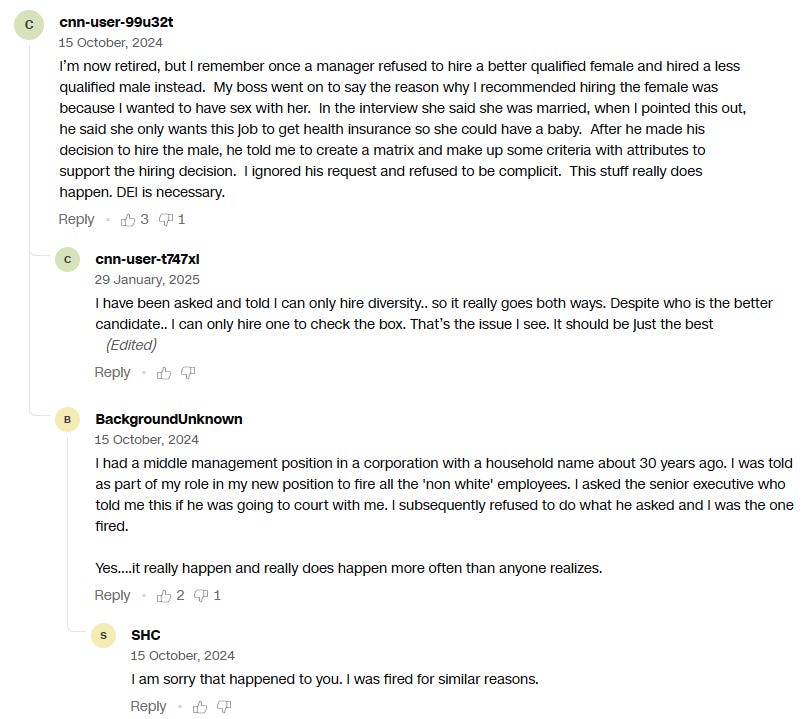This Week in Tech, Race, and Gender - DINT 142
AI ethics can survive, if we codify it into our laws, said Dr. Joy Buolamwini during a recent speech at Duke University.
AI Ethics Can Survive the Current Political Climate - Joy Buolamwini
Dr. Joy Buolamwini spoke to future and current policymakers and armed them with a seven-step plan advocating for ethics in AI/facial recognition technology.
Duke invited Dr. Buolamwini as part of their David M. Rubenstein Distinguished Lecture Series to inspire other thought leaders and policymakers. While many look at the landscape of today’s AI ethics as bleak, Buolamwini delivers speeches, podcasts, keynotes, and book signings to spread her message of ethics in AI.
When asked about the current spate of presidential directives around diversity, equity, and inclusion, Buolamwini said, “However, despite the recent crackdown on diversity, equity and inclusion, I have so much hope due to a global environment of support for AI safety."
In addition to hope, Buolamwini made a direct statement about the current state of policy in the U.S.:
“Policy that isn’t supported by legislation is fragile—it can be overturned with the stroke of a pen. But when protections are codified into law, they endure beyond political cycles.”
We see this even now as a law from 1934 is protecting the U.S. Securities and Exchange Commission (SEC) from rapid rollbacks of programs aimed at diversifying the boards of directors at the world’s largest, most influential companies.
The SEC can still require publicly traded companies to disclose how they use diversity in their board member voting process.
The Securities Exchange Act of 1934 provides the codification into law Buolamwini speaks of in her speech.
In section Section 6(b)(5) we see:
“The rules of the exchange are designed to prevent fraudulent and manipulative acts and practices, to promote just and equitable principles of trade, to foster cooperation and coordination with persons engaged in regulating, clearing, settling, processing information with respect to, and facilitating transactions in securities, to remove impediments to and perfect the mechanism of a free and open market and a national market system, and, in general, to protect investors and the public interest."
And while the SEC approved Nasdaq’s adherence to its own board diversity initiatives, the U.S. Court of Appeals for the Fifth Circuit overturned their ruling. Their reason? Nasdaq’s program didn’t sufficiently prove it was designed to protect investors. The vote was 9-8, showing the Fifth Circuit didn’t give a full-throated approval of the overturn.
This is a ray of light in what some say is a bleak landscape of reduced opportunities due to recent presidential directives around diversity.
Tech companies, as we know, usually strive to go public so organizations have to abide by the SEC’s rules if they want to continue offering stock in their companies to the public.
Which laws would be best for promoting ethics in AI? The U.S. under its previous presidential administration introduced a Blueprint for an AI Bill of Rights. It’s a policy framework and not a law so it can’t be enforced. It also can’t be rescinded. In the current U.S. administration, there’s been a reversal of many of the tenets in the AI Bill of Rights.
"Nothing is more powerful than an idea whose time has come.” - Victor Hugo, author, 1877, “The History of a Crime” (more context and background here)
More News at the Intersection of Tech, Race, and Gender
Yes, it really does happen.
Comments section on cnn.com beneath a story titled, “Two of America’s most prominent Black business leaders have a warning for companies abandoning DEI”
cnn-user-99u32t
15 October, 2024
I’m now retired, but I remember once a manager refused to hire a better qualified female and hired a less qualified male instead. My boss went on to say the reason why I recommended hiring the female was because I wanted to have sex with her. In the interview she said she was married, when I pointed this out, he said she only wants this job to get health insurance so she could have a baby. After he made his decision to hire the male, he told me to create a matrix and make up some criteria with attributes to support the hiring decision. I ignored his request and refused to be complicit. This stuff really does happen. DEI is necessary.
Dangerous
Here’s why this is dangerous:
Not Surprising
Palate Cleanser
I actually did cry laughing watching this








